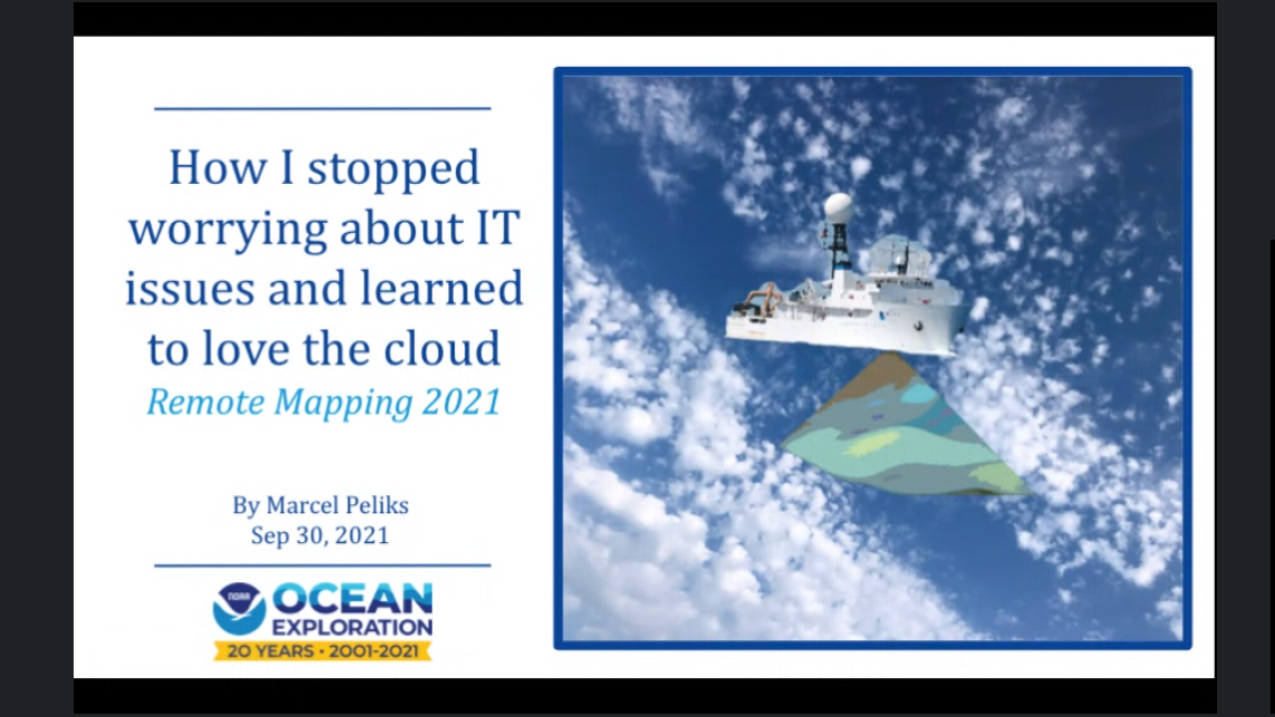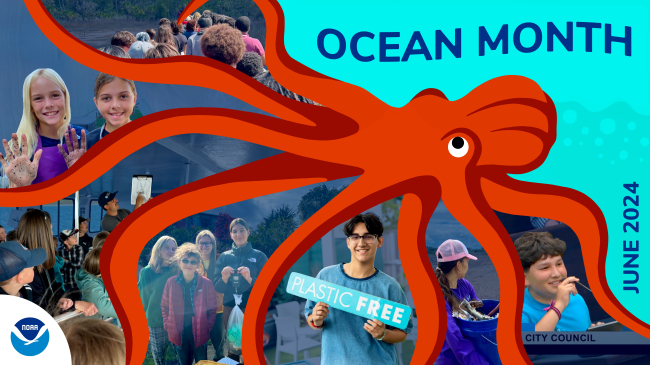While NOAA Ship Okeanos Explorer was mapping the seafloor off the East Coast of the United States, information was beaming from the ship, to a satellite, and finally, to Marcel Peliks’ laptop in Santa Cruz, California. Marcel, a graduate student and NOAA Ocean Exploration Explorer-in-Training, was processing the data in real time, expanding his skills while keeping the Okeanos Explorer’s mission on track.

Marcel Peliks, a Cloud Mapping Explorer-in-Training, presented a summary of his internship project in September 2021. Marcel and three other Explorers-in-Training with previous mapping experience helped to pilot a new internship format in which Explorers-in-Training process ocean floor mapping data from home while the information is collected at sea. (Image credit: NOAA)




